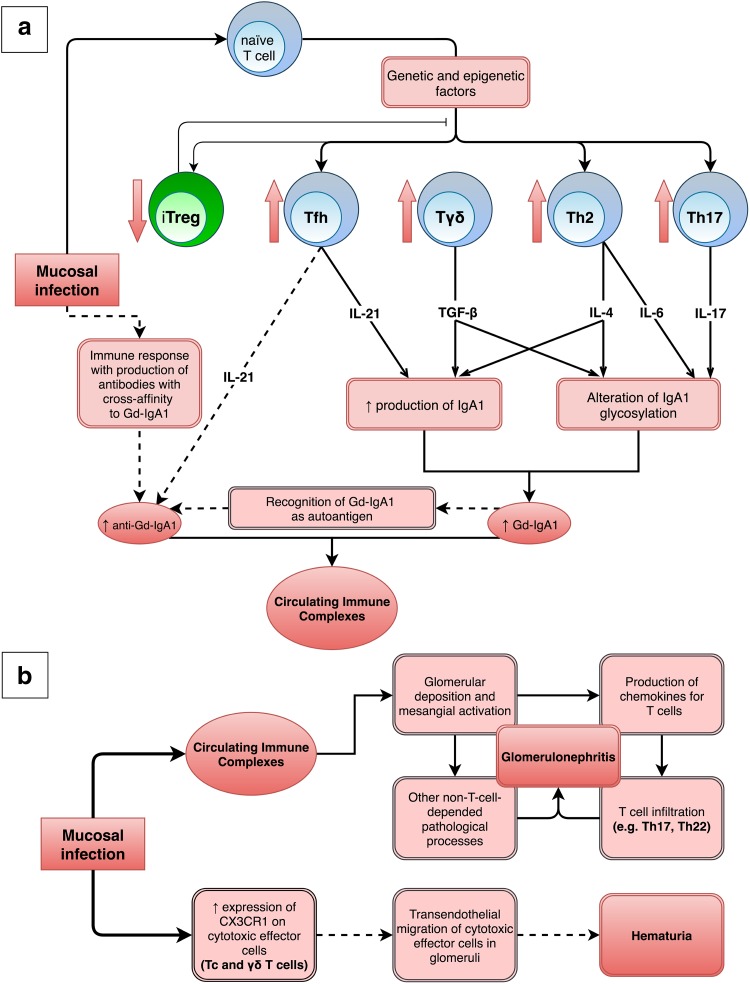Fig. 2.
Involvement of T cells and their interleukins in the pathogenesis of IgAN. a Mucosal infection can stimulate the immune system to produce various cytokines, which beside participation in immune response against infection, may participate in the IgAN pathophysiology. IL-21 (Tfh-type interleukin) enhances IgA1 production and might participate in stimulation of anti-Gd-IgA1 production. IL-4 (Th2-type interleukin) and TGF-β enhance both IgA1 production and IgA1 glycosylation alteration. Both numerically and functionally deficient iTreg population cannot effectively suppress the defective immune response leading to formation of immune complexes. All these processes lead to the formation of circulating immune complexes. b Deposition of circulating immune complexes in glomeruli results in many pathological processes—such as T cells infiltration—that initiate and exacerbate the glomerulonephritis. Additionally, infection might result in hematuria through stimulation of transendothelial migration of cytotoxic effector cells (Tc and γδ T cells) from circulation to glomeruli. Solid and dashed lines represent confirmed and hypothetical links, respectively

